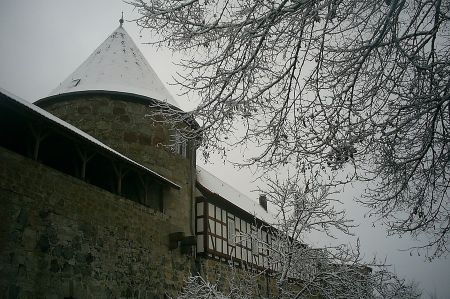Herzberg – the Esperanto city in the Harz Mountains
- Written by Portal Editor
On the way to our meeting at the Oker Dam in the Harz Mountains, we had to make a short refueling stop in Herzberg am Harz, where the suffix Herzberg – Esperanto-Stadt or as it is originally called: Herzberg –la Esperanto-urbo caught our eye.
Of course, our interest was aroused immediately, especially since the language problem has occupied us for a long time, and not just because of our project ideas.
Esperanto - in the sense of international understanding and tolerance
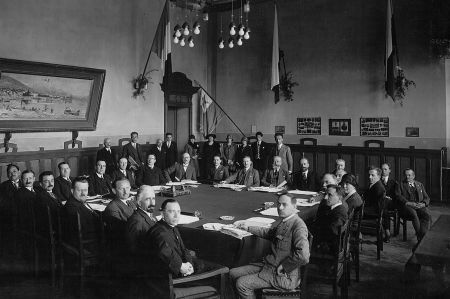 In our articles we have often drawn attention to intercultural problems between people, which are often based on language barriers or misunderstandings. How nice it would be if there were a common language that is easy for everyone to understand and learn, so that direct communication between people is possible. Of course, this can also lead to cultural losses of independent languages, but there is still a lack of investigations into what actual positive or negative effects would occur in cultural terms globally. It is already clear to us that these considerations have already existed in the past centuries and also that so-called artificial languages have been around for a long time, but there is a lack of political will to implement these ideas internationally in the sense of international understanding and tolerance. As a rule, several foreign languages are learned today, why isn't one of these foreign languages e.g. B. Esperanto?
In our articles we have often drawn attention to intercultural problems between people, which are often based on language barriers or misunderstandings. How nice it would be if there were a common language that is easy for everyone to understand and learn, so that direct communication between people is possible. Of course, this can also lead to cultural losses of independent languages, but there is still a lack of investigations into what actual positive or negative effects would occur in cultural terms globally. It is already clear to us that these considerations have already existed in the past centuries and also that so-called artificial languages have been around for a long time, but there is a lack of political will to implement these ideas internationally in the sense of international understanding and tolerance. As a rule, several foreign languages are learned today, why isn't one of these foreign languages e.g. B. Esperanto?
The stem of the word is not changed, as is often the case in German
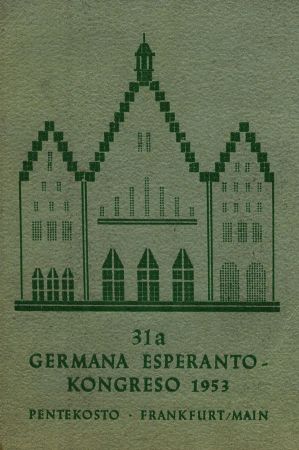 Esperanto is currently the only fully developed planned language, which is the most widely used worldwide. The development of this artificial language goes back to Polish Ludwik Lejzer Zamenhof in 1887. Under the pseudonym Doktoro Esperanto, Zamenhof published the basics of the language, which are still valid today, with the intention of creating an easy-to-learn, neutral language for international understanding.
Esperanto is currently the only fully developed planned language, which is the most widely used worldwide. The development of this artificial language goes back to Polish Ludwik Lejzer Zamenhof in 1887. Under the pseudonym Doktoro Esperanto, Zamenhof published the basics of the language, which are still valid today, with the intention of creating an easy-to-learn, neutral language for international understanding.
The words consist mainly of invariable word elements that are joined together. For example, the plural of a noun or adjective and many pronouns is formed by adding a -j: domo = 'house', domoj = 'houses', the object case by adding another -n: domojn = 'houses'. The stem of the word is not changed, as is often the case in German. The adhesive, agglutinating principle visible here is also known, for example, from Finnish, Hungarian and Turkish. The creator of Esperanto, Zamenhof, aimed for a regular language structure in order to minimize the learning effort, especially in morphology and word formation. There is only one scheme for the declension of nouns and the conjugation of verbs. The verb "to be", which is irregular in many languages, is conjugated in Esperanto according to the same scheme as all other verbs:
mi estas, i am
vi estas, you are
li estas, he is'
ŝi estas, she is'
Words were borrowed from Greek
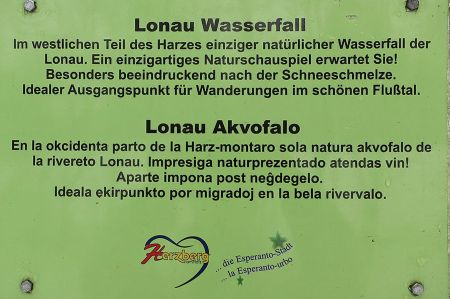 Some parts of speech have specific endings to make them easier to recognize. For example, -o is the suffix for nouns: domo = 'house'; -a is the suffix for adjectives: doma 'domestic' etc. Most Esperanto words come from Latin or Romance languages like French. A fairly large proportion also comes from Germanic languages, above all German and English (depending on the text corpus, this proportion is estimated at five to twenty percent). There are a number of words from Slavic languages, especially Polish and Russian. Words were also borrowed from Greek.
Some parts of speech have specific endings to make them easier to recognize. For example, -o is the suffix for nouns: domo = 'house'; -a is the suffix for adjectives: doma 'domestic' etc. Most Esperanto words come from Latin or Romance languages like French. A fairly large proportion also comes from Germanic languages, above all German and English (depending on the text corpus, this proportion is estimated at five to twenty percent). There are a number of words from Slavic languages, especially Polish and Russian. Words were also borrowed from Greek.
The spelling is phonematic, which means that each character is assigned only one phoneme (speech sound) and each phoneme is assigned only one character. It uses letters of the Latin alphabet, supplemented by supercharacters (diacritics). For example, ŝ corresponds to German sch and ĉ to tsch (e.g. in ŝako "chess" and Ĉeĉenio "Chechnya").
So much for the Esperanto language itself, now for the relationship to Herzberg
Since international youth clubs, congresses and other events with regard to the training and dissemination of Esperanto have been taking place in Herzberg for many years, the city has given itself the suffix "Herzberg - la Esperanto-urbo". Esperanto lessons are offered at all municipal schools as well as at the Intercultural Center Herzberg. In the local training center of the German Esperanto Association, teachers are also trained as language teachers for Esperanto in addition to language research. So Herzberg has actually developed into a center for Esperanto, which also promotes the tourism of Esperanto-speaking guests in the city. As early as July 11, 2006, the city council decided to add the suffix Herzberg – la Esperanto-urbo.
Since the origin of the artificial language is in Poland, it is all the more understandable that Herzberg also has close ties to a Polish town, in this case it is Góra, which used to be called Guhrau and is located in Silesia. In addition to the official contacts, there has also been an intensive student exchange for years, which takes place regularly.
And internationally?
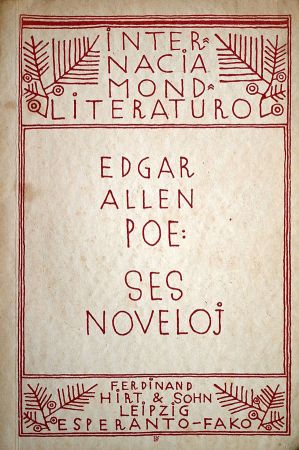 An international hosting service called Pasporta Servo provides information about Esperanto speakers who are willing to let other Esperanto speakers stay with them for a short time free of charge. The correspondence service Koresponda Servo Mondskala and Edukado.net, for example, arrange pen pals in Esperanto. Today, however, communication via the Internet via e-mail, mailing lists or Voice over IP is far more important than pen pals.
An international hosting service called Pasporta Servo provides information about Esperanto speakers who are willing to let other Esperanto speakers stay with them for a short time free of charge. The correspondence service Koresponda Servo Mondskala and Edukado.net, for example, arrange pen pals in Esperanto. Today, however, communication via the Internet via e-mail, mailing lists or Voice over IP is far more important than pen pals.
The largest Esperanto organizations in Germany are the German Esperanto Federation and the youth organization Deutsche Esperanto-Jugend with their local, regional and state associations. The largest worldwide umbrella organization is called Universala Esperanto-Asocio (Esperanto World Federation) based in Rotterdam. As a national association, the DEJ is affiliated with the UEA youth organization TEJO.
People communicate directly with each other
The venues for the Esperanto World Congress, the largest annual event with around a thousand to three thousand participants depending on the country, were most recently Havana (2010), Copenhagen (2011) and Hanoi (2012). The next World Congresses will be held in Reykjavík (2013), Buenos Aires (2014) and Lille (2015). In addition, hundreds of smaller events take place every year.
How many conflicts around the world could be avoided if people could communicate directly with each other when there is a need for discussion. How often, even with well-trained interpreters, are misunderstandings the order of the day at the highest political level, simply because the wrong terms are used or facts are taken out of context? The interpreters shouldn't even be blamed, because they can only get into the train of thought of their interlocutors, clairvoyance even the best interpreter can't.
Please read as well:
